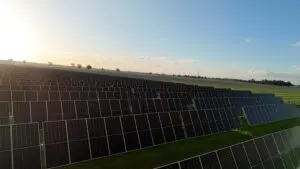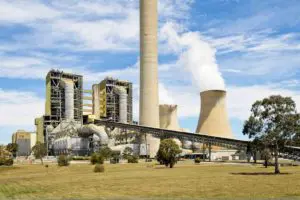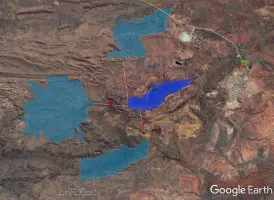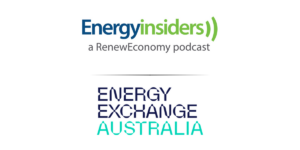
Before the 2013 election, Tony Abbott gave us fair warning that he would turn the clock back on the environment. As promised, his government has devoted itself to short-term economics and the sort of hardline ideas peddled by the Institute of Public Affairs. The result is that environmental protection is being given a lower priority than it has by any federal government since the first environmental legislation was introduced some 40 years ago.
Abbott made explicit commitments to reverse moves by the Rudd and Gillard governments, pledging to remove the price on greenhouse emissions as a first order of business. He also made clear his ideological opposition to the historic forestry “peace deal in Tasmania and his enthusiasm for an old-fashioned approach to developing northern Australia.
Yet beside the election commitments there have been nasty surprises too. As in other fields like health and education, the Abbott government has turned the clock back much further in ways that it didn’t warn voters about. While all governments are tempted to dismiss environmental problems that stand in the way of economic development, the past year has seen a dramatic increase in that trend.
Sceptics and economics
The issue which has captured most public attention is climate change. The government does not just have backbenchers who are still in denial about the science; it has climate-sceptic ministers, like Senate leader Eric Abetz, and senior advisers, like Maurice Newman, chairman of the Prime Minister’s Business Advisory Council, and Dick Warburton, who has just handed down the controversial review of the Renewable Energy Target.
The government dressed up its attack on the carbon price as an economic move, framing it as “taking the handbrake off the economy”. Yet there was no evidence at all that the price was slowing the economy. In fact, the package of measures inherited from the previous government, including the Renewable Energy Target and the Clean Energy Finance Corporation, have catalysed billions of dollars of investment and created thousands of jobs.
Future investment and job opportunities have been put at risk by the government’s approach. It is almost impossible to find an economist who takes seriously the claim that the so-called Direct Action policy will achieve even the basic promised 5% reduction in Australia’s greenhouse gas emissions by 2020.
The situation would have been far worse if the government had been able to control the Senate, where the unpredictable Palmer United Party members have not supported most of the proposed changes.
Delays and dissent
While the scrapping of the carbon price was meant to be the first priority of the new government, it actually took 10 months to get it through the Senate.
The focus now turns to the Renewable Energy Target, a previously bipartisan policy to encourage clean energy technologies. Warburton’s review has recommended that it be drastically downgraded and parts of it scrapped. Again, it is not obvious that Senate cross-benchers will endorse this act of environmental vandalism.
The Abbott government has also supported moves by the incoming Tasmanian Liberal state government to undo the Tasmanian Forests Agreement, the result of long negotiations between industry, the union representing timber workers, the former Labor government, and environmental groups.
It even made an unprecedented approach to the United Nations to try and excise an area accepted for World Heritage listing, a proposal that was dismissed as “feeble” by the international body.
Beef over the Reef
The other decision which has attracted public attention was the approval of the proposed expansion of the Abbot Point coal port, requiring extensive dredging and the dumping of millions of cubic metres of spoil within the boundaries of the Great Barrier Reef Marine Park. The level of outrage in the marine science community led to an ABC Four Corners documentary on the subject.
Given less attention by the media, but probably at least as significant in the long term, was the government’s approach of abandoning its environmental responsibility under the Environmental Protection and Biodiversity Protection Act, passed by the Howard government. Claiming that “green tape” and duplication of effort is holding back economic development, the government has proposed handing over its powers to State and Territory governments. For several decades, dating back to the Whitlam and Fraser governments, the Commonwealth has acted as a brake on the enthusiasm of growth-oriented States to approve irresponsible proposals.
Here again, the government has a problem in the Senate, which seems unlikely to pass this proposal in its entirety, and the entire policy may now be coming unstuck. PUP senators have said they will join Labor and the Greens in voting to retain the “water trigger” added to the law by former independent MP Tony Windsor, meaning that the Commonwealth will still be responsible for assessing the cumulative impact of proposed developments on both surface water bodies and groundwater.
More pain in the pipeline
There are plenty more environmentally damaging policies which the government did not flag before the election. It has sneakily undone the legislated network of marine protected areas by abolishing the management plans that gave the agreement legal teeth.
It has shifted transport funding away from public transport projects, even those proposed by Liberal state governments, in favour of the sort of urban road schemes that Infrastructure Australia had decided are a waste of public money. It has increased immigration, adding to the environmental pressure of human demands.
The government has fulfilled its pre-election promise of a great leap backwards on environmental protection, under the guise of economic advancement. While restrained by the Senate in some areas, it has exceeded expectations in others. There may well be plenty more surprises to come.
Source: The Conversation. Reproduced with permission.








